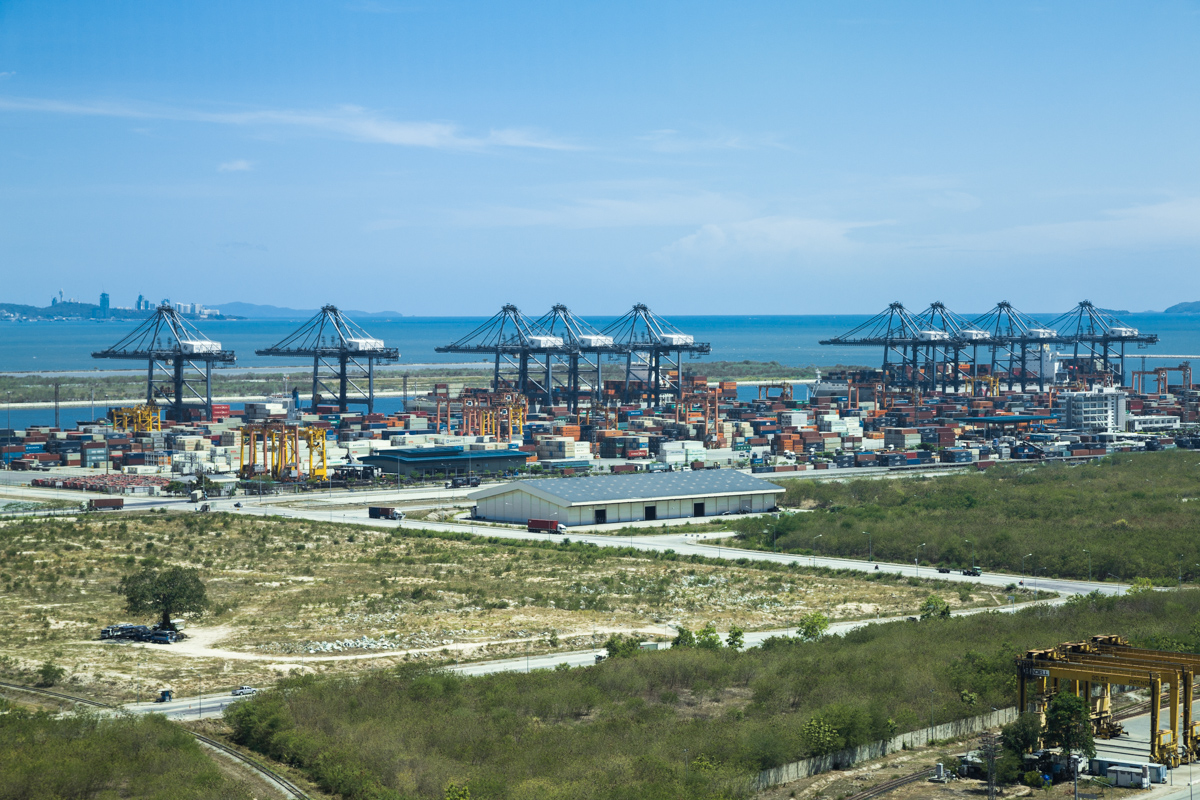The Eastern Special Development Zone Act B.E. 2561 (2018) (‘EEC Act’), regulating the establishment of a special economic zone in eastern Thailand, must be framed with a human-rights-based approach, and all decisions purportedly made pursuant to the Act should be made in consultation with affected individuals and communities. This is the considered recommendation emphasized by academics and civil society actors at a consultation on the EEC Act co-hosted by International Commission of Jurists (ICJ), EnLAWThai Foundation, Land Watch Thai and EEC Watch, on 12 March 2024 in Bangkok.
“The problem with the EEC Act is that it focuses exclusively on privileges granted to investors, disregarding several safeguards outlined in other pieces of domestic legislation. This creates conditions where the activities within the special economic zone in eastern Thailand are governed by legal exceptions,” stated Surachai Trongngam, Director of EnLAWThai Foundation, during the consultation.
Having said that, the EEC Act does impose obligations upon the State and corporations to adhere to human rights law and standards. For example, the Act acknowledges the three pillars of the UN Guiding Principles on Business and Human Rights (UNGPs) – namely, the “protect, respect and remedy framework” for affected persons, as well as the “principle of promotion and protection of human rights” in the process of elaborating policies and plans for land use, infrastructure and public utility development.
“Despite the duty to promote and protect human rights and the three pillars of the UNGPs guaranteed under the EEC Act, it is of concern that these standards have not been translated into practice,” added Saovanee Kaewjullakarn, ICJ’s Legal Consultant.
The lack of inclusiveness and participation of affected communities in decision-making processes is also reflected in the composition of the EEC Policy Committee established under the Act. This committee possesses extensive executive powers, including the authority to formulate policies for the development of the EEC, approve the overall plan for its development, and resolve any issues and obstacles that arise during the implementation of EEC policies. Yet, it comprises solely representatives from central government agencies and the business sector, without representation from provincial authorities, civil society organizations, unions or affected communities.
Participants in the consultation also noted that the “Eastern Special Development Zone Fund,” established under the EEC Act for the purpose of providing assistance or supporting remedial actions for people and communities affected by the development of the EEC, was in fact not being utilized for such purposes. Instead, the funds were being allocated for other activities. Instances were discussed where remedies were provided to affected communities, but rather than using the support available under the EEC Fund, the remedies were drawn from the budget of other governmental bodies.
According to the Act on Legislative Drafting and Evaluation of Law B.E. 2562 (2019), all Thai laws must undergo an “outcome evaluation” at least every five years. Accordingly, the EEC Act will undergo an evaluation process by 2024, with the Office of the Eastern Special Development Zone Policy Committee responsible for conducting such evaluation.
In light of this, the outcomes of this consultation will lay the foundation for future public dialogues and similar engagements scheduled for later this year. Collective insights gathered will be compiled and submitted as part of the official consultation process during the evaluation of the EEC Act by the Office of the Eastern Special Development Zone Policy Committee in 2024.
Further reading
Contact
Sanhawan Srisod, Associate International Legal Adviser, ICJ Asia Pacific Programme; e: sanhawan.srisod@icj.org
Melissa Upreti, ICJ Regional Director for Asia and the Pacific, e: melissa.upreti@icj.org





